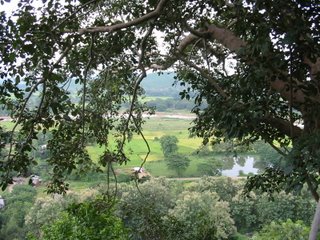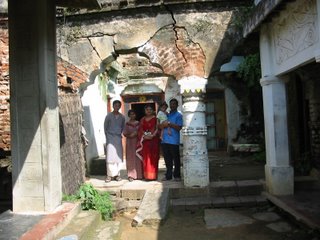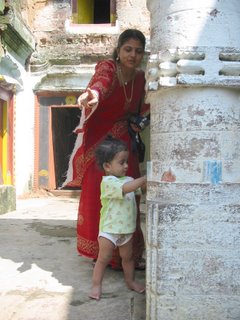 Long ago and far away, my forefathers had a homeland; a sylvan paradise which they left forever after India was partitioned. My elders told dreamy stories about a lost Arcadia of milk, honey and communal amity. That home was a village called Burichang.
Long ago and far away, my forefathers had a homeland; a sylvan paradise which they left forever after India was partitioned. My elders told dreamy stories about a lost Arcadia of milk, honey and communal amity. That home was a village called Burichang.Burichang has grown into a sub-divisional town in Comilla District now, in a foriegn country named Bangladesh. My uncle visited there recently and told us how the family home now houses governement offices and a school.
Born in free India, growing up in capital cities like New Delhi and Washington D.C., I listened with incredulity to what seemed like fairy tales of a lost Eden. I never lived in a real Indian village, never visited one until I did my rural and agricultural banking postings as a probationary officer with the State Bank of India group.

I finally inherited a genuine rural address by marriage, village Kudutai, dist Ganjam, Orissa. The emerald paddy fields and groves of cashew trees with luscious red cashew apples, the undulating hills, yes, this is a paradise on earth.
The now crumbling ancestral mansion still displays signs of old grandeur in the massive decorated pillars and ornamental doorways. These were once scenes of community festivities, of village panchayats and dispensation of justice.
The old mansion now lies abandoned, like the beached body of a magnificent whale.
 Descendants of the clan live in featureless matchbox quarters with modern amenities huddled behind the grand facade of the original house.
Descendants of the clan live in featureless matchbox quarters with modern amenities huddled behind the grand facade of the original house.Seeing the beauty of Kudutai, I now understand what my own parents and elders still mourn. I also see that it is no unspoilt paradise. Kudutai is an ordinary village in a remote corner of a less developed state of India. Electricity came here only at the fag end of the twentieth century. A few months ago, a young cousin died of cerebral malaria. There are no doctors or hospitals in the village.
The younger generation of the family are now entering into service oriented professions. Idealism can also motivate.

No comments:
Post a Comment